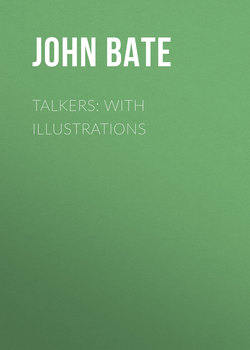Читать книгу Talkers: With Illustrations - John Bate, John Bate - Страница 3
II.
THE FALSE HUMOURIST
Оглавление“There are more faults in the humour than in the mind.”
– La Rochefoucauld.
Among the various kinds of talk there is, perhaps, none in which talkers are more liable to fail than in humour. It is that in which most persons like to excel, but which comparatively few attain. It is not the man whose imagination teems with monsters, whose head is filled with extravagant conceptions, that furnishes innocent pleasure by humour. And yet there are those who claim to be humourists, whose humour consists only in wild irregular fancies and distortions of thought. They speak nonsense, and think they are speaking humour. When they have put together a round of absurd, inconsistent ideas, and produce them, they cannot do it without laughing. I have sometimes met with a portion of this class that have endeavoured to gain themselves the reputation of wits and humourists by such monstrous conceits as almost qualified them for Bedlam, rather than refined and intelligent society. They did not consider that humour should always lie under the check of reason; and requires the direction of the nicest judgment, by so much the more it indulges in unrestrained freedoms. There is a kind of nature in this sort of conversation, as well as in other; and a certain regularity of thought which must discover the speaker to be a man of sense, at the same time he appears a man given up to caprice. For my part, when I hear the delirious mirth of an unskilful talker, I cannot be so barbarous as to divert myself with it, but am rather apt to pity the man than laugh at anything he speaks.
“It is indeed much easier,” says Addison, “to describe what is not humour than what is; and very difficult to define it otherwise than as Cowley has done wit, by negatives. Were I to give my own notions of it, I would deliver them after Plato’s manner, in a kind of allegory – and by supposing humour to be a person, deduce to him all his qualifications, according to the following genealogy. Truth was the founder of the family, and the father of Good Sense. Good Sense was the father of Wit, who married a lady of collateral line called Mirth, by whom he had issue, Humour. Humour, therefore, being the youngest of this illustrious family, and descendant from parents of such different dispositions, is very various and unequal in his temper: sometimes you see him putting on grave looks and a solemn habit, sometimes airy in his behaviour, and fantastic in his dress; inasmuch that at different times he appears as serious as a judge, and as jocular as a merry-andrew. But as he has a great deal of the mother in his constitution, whatever mood he is in, he never fails to make his company laugh.”
In carrying on the allegory farther, he says of the false humourists, “But since there is an impostor abroad, who takes upon him the name of this young gentleman, and would willingly pass for him in the world: to the end that well-meaning persons may not be imposed upon by cheats, I would desire my readers, when they meet with this pretender, to look into his parentage and examine him strictly, whether or no he be remotely allied to truth, and lineally descended from good sense; if not, they may conclude him a counterfeit. They may likewise distinguish him by a loud and excessive laughter, in which he seldom gets his company to join with him. For as true Humour generally looks serious, while everybody laughs about him; false Humour is always laughing, while everybody about him looks serious. I shall only add, if he has not in him a mixture of both parents, that is, if he would pass for the offspring of Wit without Mirth, or Mirth without Wit, you may conclude him to be altogether spurious and a cheat.
The impostor of whom I am speaking descends originally from Falsehood, who was the mother of Nonsense, who gave birth to a son called Frenzy, who married one of the daughters of Folly, commonly known by the name of Laughter, from whom came that monstrous infant of which I have been speaking. I shall set down at length the genealogical table of False Humour, and, at the same time, place by its side the genealogy of True Humour, that the reader may at one view behold their different pedigree and relations: —
I might extend the allegory, by mentioning several of the children of False Humour, who are more in number than the sands of the sea, and might in particular enumerate the many sons and daughters of which he is the actual parent. But as this would be a very invidious task, I shall only observe in general that False Humour differs from the True, as a monkey does from a man.
First of all, he is exceedingly given to little apish tricks and buffooneries.
Secondly, he so much delights in mimicry, that it is all one to him whether he exposes by it vice and folly, luxury and avarice; or, on the contrary, virtue and wisdom, pain and poverty.
Thirdly, he is wonderfully unlucky, inasmuch that he will bite the hand that feeds him, and endeavour to ridicule both friends and foes indifferently. For, having but small talents, he must be merry where he can, not where he should.
Fourthly, being entirely devoid of reason, he pursues no point either of morality or instruction, but is ludicrous only for the sake of being so.”
